Home

Travel & Holidays

Travelling in Pregnancy
In this Article
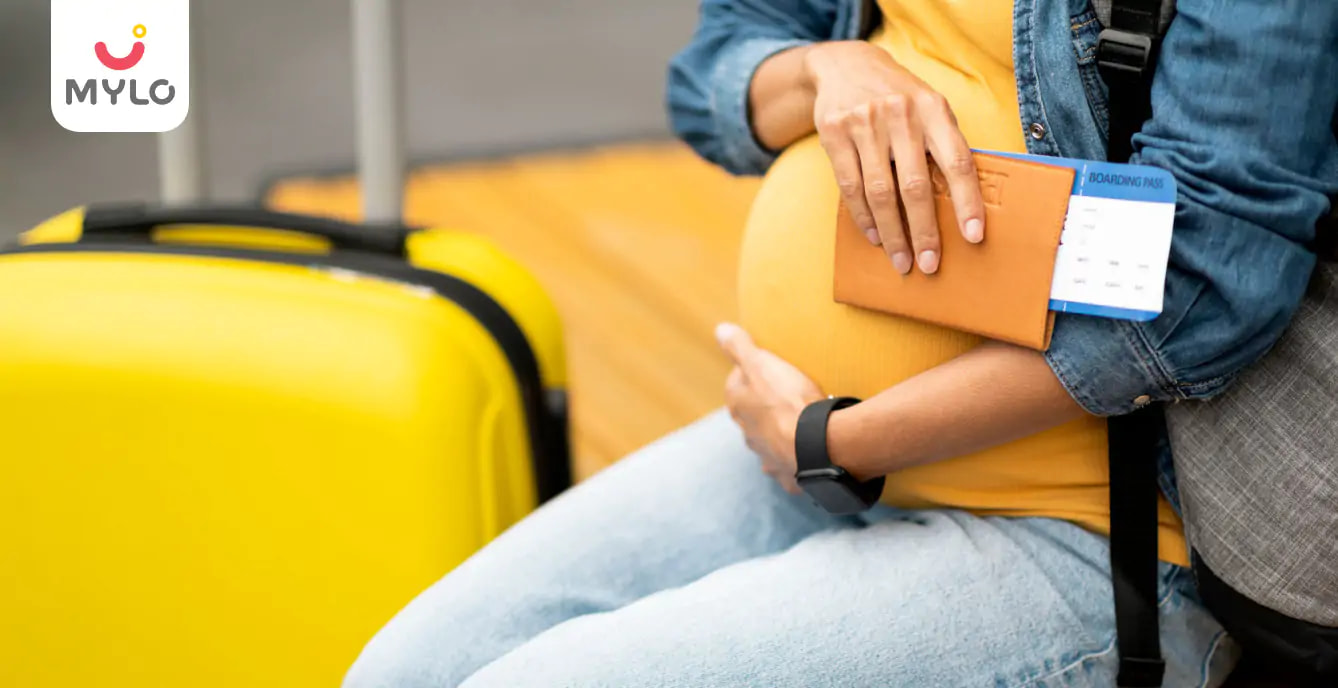
Travel & Holidays
Travelling in Pregnancy
Updated on 28 August 2023
Travelling during pregnancy is completely normal and with a few precautions can be done in a stress-free manner. The safest period during which you can travel in pregnancy is the second trimester, weeks 13 through 27. You can also travel during the first and third trimesters but travel during that period comes with a lot more issues and precautions.
In this article, we will discuss everything you need to know about travelling during pregnancy, whether it is by car, air or ship. We will also try to answer questions like when should you stop travelling by car when pregnant.
When should a pregnant woman travel?
With all the nausea, vomiting, fatigue and unexpected body changes that the first trimester brings, most women prefer not to travel during the first trimester of pregnancy. Additionally, the risk of miscarriage is also higher in the first 12 weeks of pregnancy, whether you’re travelling or not.
Also read: Travel Tips to Follow During The First Trimester of Your Pregnancy
Similarly, travelling in the last stretch of pregnancy i.e., the final three months, can also be very tiring and inconvenient. Additionally, there is the risk of going into labor that keeps women from travelling in their third trimester of pregnancy.
As a result, most women find the second trimester the safest and most comfortable time to travel or take a holiday. The months 4 to 6 can be said to be the best time to travel in pregnancy.
Flying while expecting
Flying or air travel in pregnancy is not harmful to the expecting mother or her baby. However, it is best to discuss any health issues or pregnancy complications with your doctor prior to travelling during pregnancy by air.
Some airlines may also ask for a letter from your doctor confirming your due date and that you are not at risk of any complications after week 28 of your pregnancy. Additionally, after week 37 of pregnancy, the chances of labor are higher and some airlines may not allow you to fly during this time.
Long-distance travel (longer than 4 hours) carries a risk of blood clots during pregnancy. So, expecting women when travelling by air should drink plenty of water and move around every 30 minutes to stay safe.
You may also like : Travel Tips to Follow During The First Trimester of Your Pregnancy
Pregnancy travel vaccinations
Most vaccines that contain live bacteria or viruses are not recommended during pregnancy as they could harm the baby in the womb. However, some live travel vaccines may be given to pregnant women if the risk of infection outweighs the risk of live vaccination. You should ask your doctor about travel vaccinations. All non-live vaccines, which don’t contain live bacteria or viruses are safe to use in pregnancy.
Travelling by car during pregnancy
Although travelling during pregnancy is considered safe, pregnant women should avoid long car journeys. In unavoidable circumstances, expecting mothers should stop regularly and stretch and move around when travelling by car
1. Keep Stretching
If you’re not the one driving, you can flex and rotate your feet and wiggle your toes to keep up the blood circulation and reduce any stiffness or discomfort. You may also wear compression stockings when on long car journeys (over 4 hours) to increase blood flow and prevent blood clots. You can also use maternity pillow for extra comfort.
2. Stay Hydrated
While on car journeys during pregnancy, you must stay hydrated, eat natural and energy-boosting foods to keep fatigue and dizziness at bay.
3. Wear Seatbelt
You must always wear your seat belt with the cross strap between your breasts and the lap strap under your bump and across the pelvis.
Is driving while pregnant risky?
Road accidents are among the leading causes of injury in pregnant women. Having said that, expecting mothers can drive while pregnant given that they follow all the safety instructions and take necessary precautions. Wearing the seat belt correctly, making frequent stops and avoiding driving in case of nausea, movement restrictions or brain fog are some of the points pregnant women must keep in mind while driving.
Until what month of pregnancy can I travel by car?
Pregnancy complications like hypertension, preterm labor and water breaking often come without a warning and require immediate attention. So, if you’re 36 weeks pregnant or further along, you should avoid travelling more than two hours by car. Additionally, air travel after 36 weeks is not recommended.
Sailing during pregnancy
If you’re planning on travelling by water such as by boat, ship or ferry, you must first consult your doctor. In case of long boat trips or cruises, you must enquire if there is any provision for pregnancy and medical services at the docking ports. Getting help on water is more of a distant plea so, it’s best to avoid long-distance water journeys while pregnant.
Tips to keep in mind when you travel in pregnancy
Here are some safety tips you must follow when travelling during pregnancy:
1. Plan well in advance
Get an all-clear from your doctor, ensure that your health insurance is valid at your destinations and that medical facilities in the area are easy to access. You may want to get additional travel insurance just in case. If travelling by air choose the aisle seat as it allows easy access to the washroom and allows you to take a walk and stretch yourself at frequent intervals of time.
2. Research nearby medical facilities
Women who're in the 3rd trimester of pregnancy should especially pay attention and ensure that they have a well-researched and updated list of medical facilities in the area which are equipped with proper facilities that can manage complications like premature pregnancy and caesarean sections.
3. Keep all your medical information handy
From your blood type to your allergy reports to the medical history of your reproductive organs everything will come in handy if you have to go to an impromptu visit to the hospital. Try to avoid places that aggravate these issues or put too much stress on your body.
4. Check for food and water
Both during travel and at your destination ensure that you have safe and hygienic food available with you along with clean drinking water. Drink plenty of water at all times as staying hydrated doesn’t involve much effort to ensure that you remain healthy.
5. Get enough rest and meditation
During travel, it's important that you practice mindfulness and listen to your body. If your body says it’s feeling tired then listen to it and take a break to rest and relax. During travel, sleep is a must as it not only prevents exhaustion it also prevents feelings of nausea. Proper sleep is important for not only one’s physical health but also mental health. Meditation along with sleep helps you to relax and de-stress your body which assists in a healthy pregnancy.
Conclusion
If you need to travel in pregnancy, follow the above-mentioned instructions and consult your doctor. We wish you safe travels on your journey to all your destinations but especially parenthood. Always check with your doctor before travelling for long distances and also ask your any precautions to follow. You can make your travel safe and comfortable by following the tips discussed above.
References
1. Shalev Ram, H., Ram, S., Miller, N., Rosental, Y. S., & Chodick, G. (2020). Air travel during pregnancy and the risk of adverse pregnancy outcomes as gestational age and weight at birth: A retrospective study among 284,069 women in Israel between the years 2000 to 2016.
2. Walentiny, C. (2009). [Pregnancy and traveling]. Deutsche Medizinische Wochenschrift
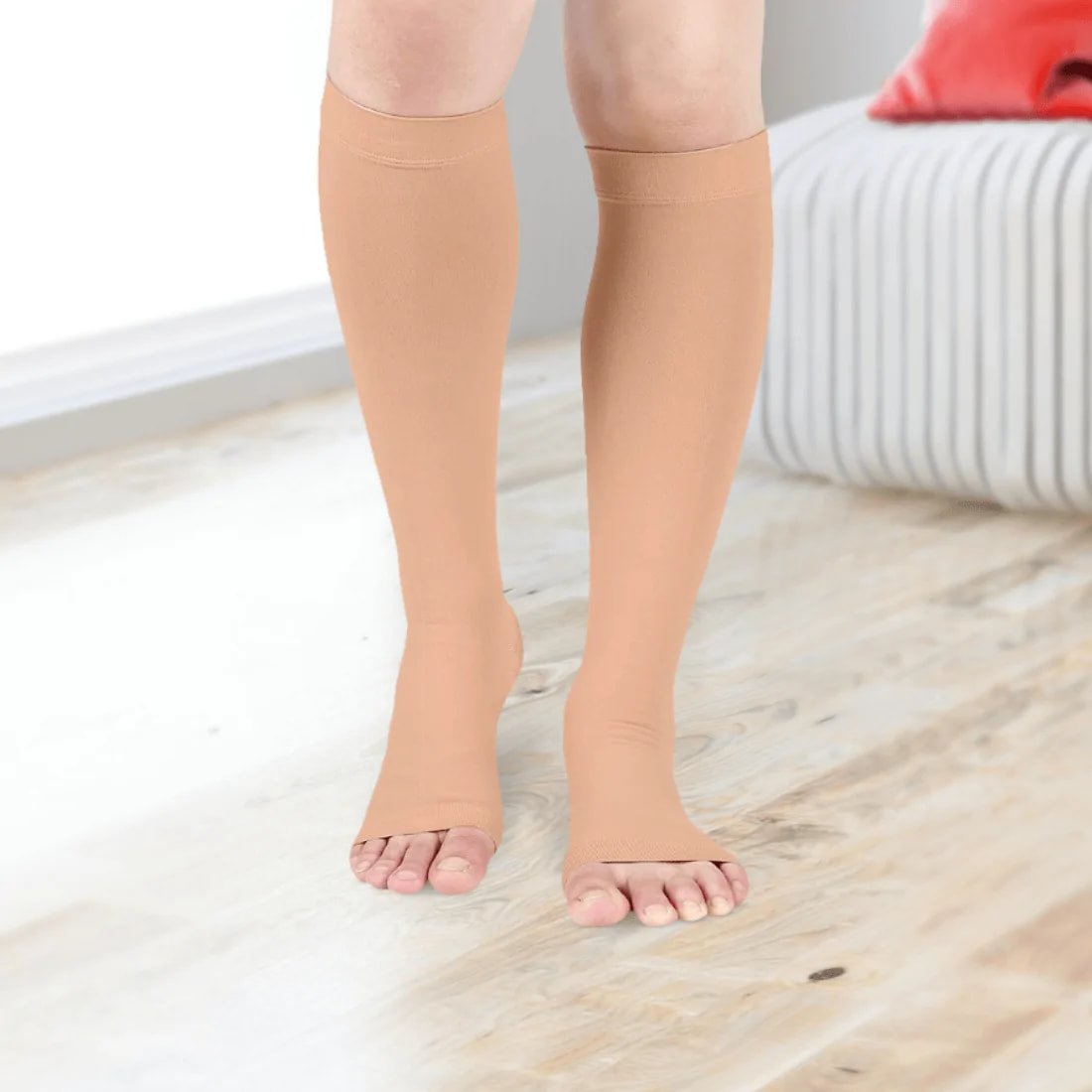
Compression Stocking Socks - S
Compression Stockings for Varicose Veins | Reduces Swelling | Boosts Blood Circulation
₹ 364

3.6
(300)


430 Users bought



Written by
Ravish Goyal
Official account of Mylo Editor
Read MoreGet baby's diet chart, and growth tips

Related Articles
Related Questions
Hello frnds..still no pain...doctor said head fix nhi hua hai..bt vagina me pain hai aur back pain bhi... anyone having same issues??

Kon kon c chije aisi hai jo pregnancy mei gas acidity jalan karti hain... Koi btayega plz bcz mujhe aksar khane ke baad hi samagh aata hai ki is chij se gas acidity jalan ho gyi hai. Please share your knowledge

I am 13 week pregnancy. Anyone having Storione-xt tablet. It better to have morning or night ???

Hlo to be moms....i hv a query...in my 9.5 wk i feel body joint pain like in ankle, knee, wrist, shoulder, toes....pain intensity is high...i cnt sleep....what should i do pls help....cn i cosult my doc.

Influenza and boostrix injection kisiko laga hai kya 8 month pregnancy me and q lagta hai ye plz reply me

Related Topics
RECENTLY PUBLISHED ARTICLES
our most recent articles

Medical Procedures
Varicocele Surgery Cost: What You Need to Know Before You Go Under the Knife
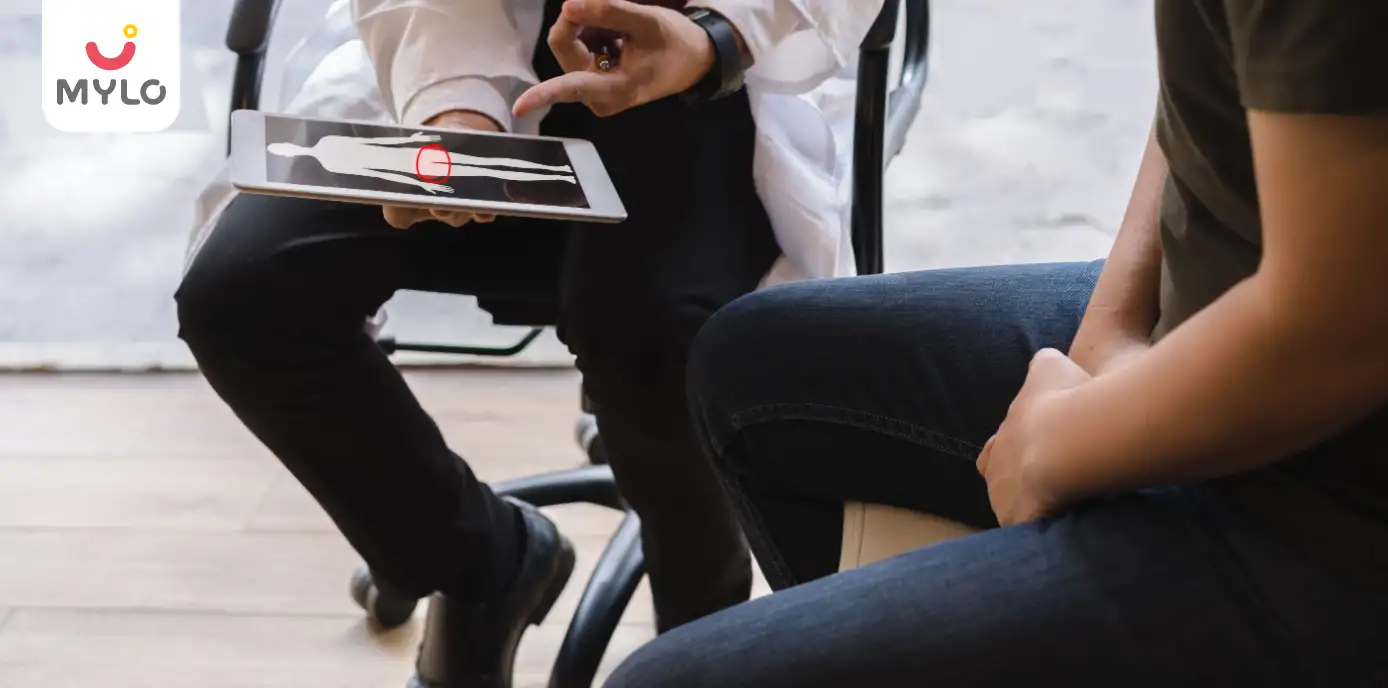
Male Infertility
Testicular Pain: Don't Ignore, Know When to Seek Medical Attention
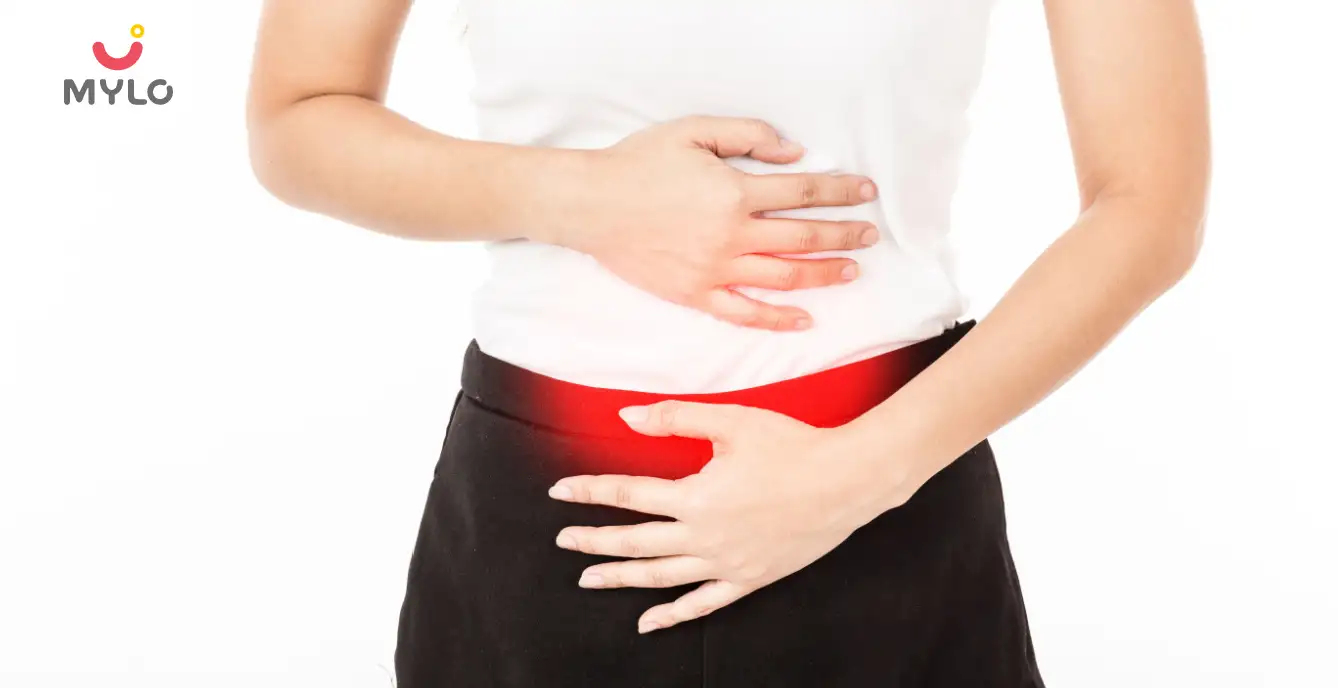
PCOS & PCOD
PCOS with Regular Periods: Understanding the Symptoms and Implications
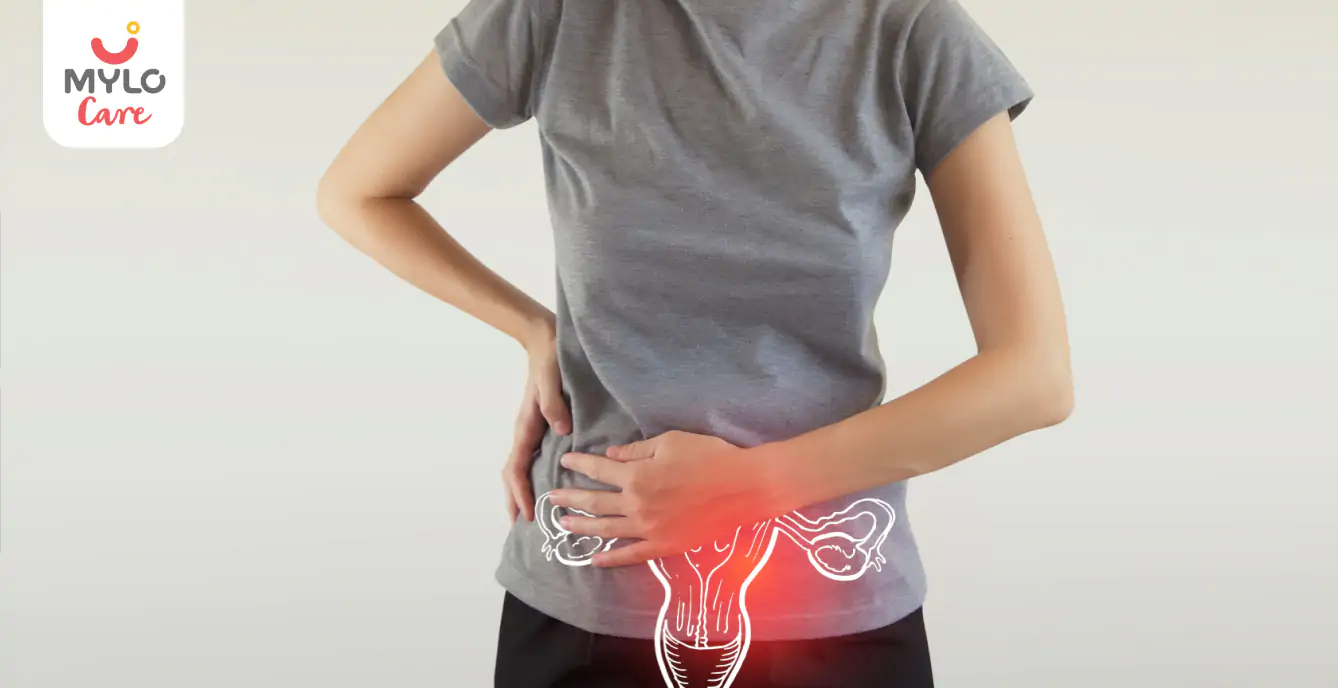
Women Specific Issues
Bulky Uterus: What You Need to Know About this Common Gynecological Issue

babyproducts
Mylo Baby Wipes Review

PCOS & PCOD
PCOS Treatment in Ayurveda: The Ultimate Guide to Natural Treatment Options
- PCOS Acne: The Ultimate Guide to Causes, Treatment and Management
- Maggi in Pregnancy: Is It Safe to Enjoy Your Favorite Instant Noodles?
- Oats During Pregnancy: A Winning Combination for Both Mom and Baby
- Types of IVF, Their Benefits and Side Effects Everything You Need to Know..
- How to Sterilize Baby Bottles: The Ultimate Step-by-Step Tutorial
- What to eat when trying to conceive
- White Discharge After IUI: Is It Normal & When to See a Doctor
- Diet & Exercises Your Wife Can Follow During Pregnancy
- Can a diet plan help deal with infertility in women and boost the chances of conception?
- How to Sterilize Breast Pump: A Comprehensive Guide for New Moms
- Bronchiectasis Meaning in Hindi | ब्रोन्किइक्टेसिस क्या होता है?
- The Ultimate Guide to Teej 2023: Celebrations, Traditions, and Dates
- Should I Pee After Sex if Trying to Get Pregnant? And 5 Other FAQs
- Menorrhagia: A Guide to Understanding Heavy Period Bleeding (Part 1)


AWARDS AND RECOGNITION

Mylo wins Forbes D2C Disruptor award

Mylo wins The Economic Times Promising Brands 2022
AS SEEN IN

- Mylo Care: Effective and science-backed personal care and wellness solutions for a joyful you.
- Mylo Baby: Science-backed, gentle and effective personal care & hygiene range for your little one.
- Mylo Community: Trusted and empathetic community of 10mn+ parents and experts.
Product Categories
Baby Carrier | Baby Soap | Baby Wipes | Stretch Marks Cream | Baby Cream | Baby Shampoo | Baby Massage Oil | Baby Hair Oil | Stretch Marks Oil | Baby Body Wash | Baby Powder | Baby Lotion | Diaper Rash Cream | Newborn Diapers | Teether | Baby Kajal | Baby Diapers Pants | Cloth Diapers | Laundry Detergent | Lactation Granules |







